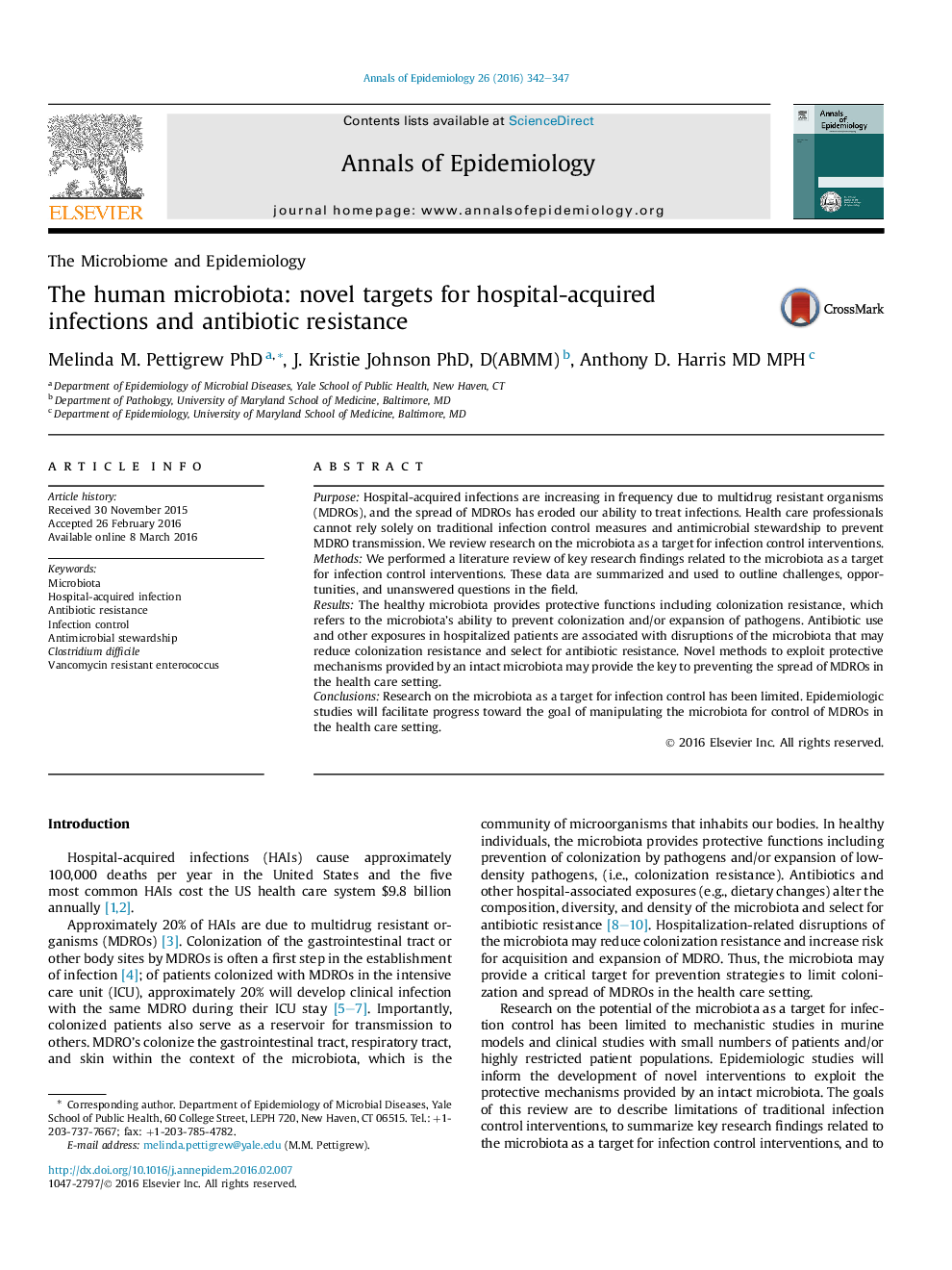| Article ID | Journal | Published Year | Pages | File Type |
|---|---|---|---|---|
| 3443636 | Annals of Epidemiology | 2016 | 6 Pages |
PurposeHospital-acquired infections are increasing in frequency due to multidrug resistant organisms (MDROs), and the spread of MDROs has eroded our ability to treat infections. Health care professionals cannot rely solely on traditional infection control measures and antimicrobial stewardship to prevent MDRO transmission. We review research on the microbiota as a target for infection control interventions.MethodsWe performed a literature review of key research findings related to the microbiota as a target for infection control interventions. These data are summarized and used to outline challenges, opportunities, and unanswered questions in the field.ResultsThe healthy microbiota provides protective functions including colonization resistance, which refers to the microbiota's ability to prevent colonization and/or expansion of pathogens. Antibiotic use and other exposures in hospitalized patients are associated with disruptions of the microbiota that may reduce colonization resistance and select for antibiotic resistance. Novel methods to exploit protective mechanisms provided by an intact microbiota may provide the key to preventing the spread of MDROs in the health care setting.ConclusionsResearch on the microbiota as a target for infection control has been limited. Epidemiologic studies will facilitate progress toward the goal of manipulating the microbiota for control of MDROs in the health care setting.
